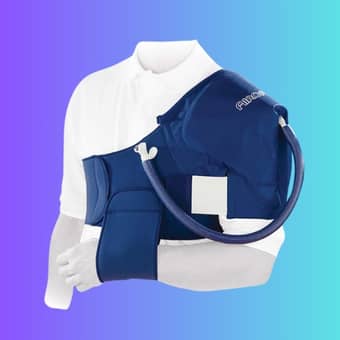Beginners often find weight loss overwhelming. But, with the right approach, you can achieve your goals. You can do so without risk and with great efficiency. This guide will give you strategies to start your weight loss journey. It will help you focus on your health while making lasting changes. You’ll learn to make informed choices. They will match your lifestyle and help you get lasting results. This includes understanding nutrition and adding exercise. Get ready to take charge of your health and begin a fulfilling path to weight loss!

Table of Contents
Key Takeaways:
-
Set realistic goals: Make weight loss targets you can actually reach. This helps keep you motivated and allows you to track your progress with simplicity.
-
Balanced Diet: Eat a variety of whole foods. These include fruits, vegetables, lean proteins, and whole grains. Avoid processed foods.
-
Engage in physical activity on a consistent basis. Combine cardio and strength training. This will improve your health and speed up weight loss.
I. Understanding Weight Loss
A successful weight loss journey starts with knowing what it is. It’s not about shedding pounds but also about achieving a healthier lifestyle. Focus on balanced nutrition, exercise, and mental well-being. This will help you manage your weight long-term. Learn the basics of weight loss. It will help you make good choices and stay motivated on your journey.
1.1. The Science Behind Weight Loss

Weight loss occurs when you burn more calories than you consume. This creates a calorie deficit. This deficit forces your body to tap into stored fat for energy, leading to weight reduction. Your body’s ability to process calories depends on many factors. These include metabolic rate, age, gender, and activity level. These concepts will help you tailor your approach to your goals.
1.2. Common Myths and Misconceptions
Resorting to drastic weight-loss methods often leads to disappointment and unhealthy practices. Many believe that extreme diets are the only way to lose weight. But these ideas can be misleading. They can cause weight regain and health issues.
Many people hold the mistaken belief that carbs are bad. They think you must exercise a lot to lose weight. In reality, balanced nutrition is key, and moderation is vital. Also, many think fad diets and weight loss pills are quick, effective fixes. Knowing what helps with weight management can keep you on track to your health goals. It can help you avoid pitfalls.
II. Setting Realistic Goals
If you want to achieve safe and effective weight loss, it’s vital to set realistic goals. Don’t aim for drastic changes. Focus on small, attainable goals. They should motivate you and fit your lifestyle. Establishing clear goals fosters positive thinking. It lets you track your progress well. This keeps you dedicated to your weight loss journey.
2.1. Importance of Measurable Targets
Setting measurable targets is vital for your weight loss success. It allows you to check your progress and adjust your strategies as needed. Specific metrics—like pounds lost or workouts completed—help you celebrate small wins. This boosts your motivation and keeps you accountable.
2.2. Timeline for Weight Loss

Set a timeline for your weight loss journey. It should suit your needs. Instead of rushing the process, aim for a gradual change, targeting about 1 to 2 pounds per week. This approach helps you build sustainable habits. It also lets your body adjust without too much strain.
This gradual timeline enables you to build healthier lifestyle changes over time. Avoid the temptation to set unrealistic deadlines that may lead to disappointment. Instead, seek long-term health, not quick fixes. Be consistent. This will help you build a healthier bond with food and exercise. It will lead to lasting weight-loss success.
III. Nutrition Tips for Beginners
Now is the time to refine your eating habits. Eat a variety of foods that nourish your body. Watch your portion sizes. Here are some tips to help you get started:
-
Focus on fruits and vegetables.
-
Opt for whole grains over refined ones.
-
Include lean proteins like poultry, fish, and legumes.
-
Stay hydrated with water instead of sugary drinks.
-
Limit processed foods and added sugars.
By using these tips, you can start a healthier diet that helps with weight loss.
3.1. Building a Balanced Diet

On your journey to weight loss, building a balanced diet is crucial. Aim to fill your plate with a variety of food groups at every meal. Incorporate vegetables, fruits, whole grains, lean proteins, and healthy fats. By doing this, you ensure that your body gets the nutrients it needs while helping to manage hunger. This approach encourages long-lasting habits rather than a temporary fix.
3.2. Portion Control and Mindful Eating
Portion control plays a significant role in managing weight. Knowing proper serving sizes and your hunger signals can prevent overeating. While you enjoy your meals, take the time to savor each bite, focusing on the flavors and textures. It can improve your eating experience. Understanding your true satisfaction will be beneficial.
Also, portion control and mindful eating let you enjoy your favorite foods guilt-free. Use smaller plates to manage portion sizes. Enjoy treats in moderation. To lose weight, be present during meals. Acknowledge your body’s cues. This will improve your relationship with food and make weight loss more sustainable.
IV. Incorporating Physical Activity

To lose weight, incorporate exercise following a balanced diet. Regular exercise burns calories. It also boosts your metabolism and well-being. Begin with manageable activities and increase the intensity progressively as your fitness improves. Consistency is key, so find enjoyable forms of exercise to make it easier to stay on track.
4.1. Types of Exercises for Beginners
Little adjustments to your routine can make a significant impact. Consider these types of exercises to begin your fitness journey:
|
Focus on activities you enjoy, which will make it easier to maintain your commitment. Any exercise that gets you moving is beneficial. |
4.2. Creating a workout schedule

A clear workout schedule keeps you focused. It helps you make your health a priority. Schedule specific days and times for your workouts. This will create a routine that fits your lifestyle.
To create a workout schedule, choose days for regular exercise. They should not be too overwhelming. Start with two to three days per week, with gradual increments as you build endurance. Include rest days to allow for recovery, and don’t hesitate to mix up your activities to avoid monotony. The goal is to make a fun, sustainable fitness routine. It should be easy to stick to for the long term.
V. Factors Influencing Weight Loss
Not all weight loss journeys are the same. Many factors can affect your success. Consider the following elements:
-
Diet and nutritional choices
-
Physical activity levels
-
Metabolism and genetics
-
Psychological factors
-
Sleep quality
-
Stress management
These factors can either help or hinder your progress toward your goals.
5.1. Metabolism and Genetics
If you know the basics of weight loss, then this is key. Your metabolism and genetics affect your body’s response to diet and exercise. Your metabolic rate varies by person. It determines the rate at which you burn calories. It affects your weight loss progress.
5.2. Psychological Aspects of Weight Loss

Some individuals underestimate the impact of psychological factors on weight loss. Your mood and mindset can have a significant impact on your weight loss. They influence your motivation, commitment, and response to setbacks.
Also, it’s vital to recognize the psychological challenges, like emotional eating and self-sabotage. They are key to your long-term success. Using stress management and mindfulness techniques can help you. They can improve your focus on your weight loss goals. This will help you get lasting results.
VI. Staying Motivated
Weight loss is tough. But staying motivated is key to success. Set realistic goals. Celebrate your progress. Remember why you started. Surround yourself with inspiration, whether it’s through uplifting quotes or progress photos. A positive mindset can help you overcome setbacks. It will keep you committed to your journey.
6.1. Tracking Progress
Small changes can have big effects. So, you must track your progress. Consider keeping a journal to record your meals, workouts, and emotional states. This can help you identify patterns, stay accountable, and recognize areas for improvement. Monitoring your progress boosts motivation and clarifies your weight loss goals.
6.2. Building a Support System

It’s easy to feel isolated during your weight loss journey. A support system can boost your motivation and accountability. Seek out friends, family, or online communities who share similar goals. Engage in regular check-ins with your group and celebrate achievements together. This shared experience fosters camaraderie and keeps you motivated to reach your targets.
Tracking your journey and sharing it with others can help you stay accountable. This makes it less likely you’ll stray. Join local fitness groups or online forums. Share your successes and challenges. This network will encourage you. It can also share new tips and strategies to boost your weight loss journey.
Safe and Effective Weight Loss: Setting Realistic Goals for Success
As a reminder, safe and effective weight loss as a beginner requires a balanced approach. It should include nutritious eating, regular exercise, and sustainable lifestyle changes. Set realistic goals. Track your progress. Seek support from professionals or communities. Always listen to your body. Focus on your mental health. Adjust as needed to find what works best for you. Your journey is unique. So, embrace each step. It will help you build healthier habits and reach your weight loss goals.
FAQ
Q: What is the best way for beginners to start their weight loss journey?
For beginners, the best way to start a weight loss journey is to set realistic goals. Aim to lose 1-2 pounds per week. A balanced diet is important. It should include whole foods: fruits, vegetables, whole grains, lean proteins, and healthy fats. Combining these dietary changes with regular exercise can aid weight loss. Activities like walking, swimming, or cycling work well.
Q: How important is physical activity in losing weight?
Physical activity plays a significant role in weight loss. It not only helps to burn calories but also improves health. Beginners should mix aerobic exercise, like brisk walking, with bodyweight strength training. Aim for at least 150 minutes of this each week. Regular activity boosts metabolism, builds muscle, and helps maintain weight loss.
Q: Should I focus on dieting or exercising first for weight loss?
It’s best to address both diet and exercise at once. They complement each other in achieving weight loss. But, for beginners, making dietary changes might provide more immediate results. Create a calorie deficit. Eat fewer calories than you burn. Increase exercise in small increments. This balanced approach supports sustainable weight loss without overwhelming oneself.
A: Do experts recommend any specific diets for beginners?
Beginners may succeed with balanced, flexible diets. The Mediterranean Diet is one. It emphasizes whole foods, healthy fats, and lean proteins. Another popular option is the DASH Diet. It focuses on fruits, vegetables, whole grains, and low sodium. Beginners should choose a diet they can maintain long-term. Restrictive fad diets may cause quick weight loss but are hard to sustain.
Q: How can I stay motivated throughout my weight loss journey?
Staying motivated can be tough. But, it’s important to set small, achievable goals and celebrate progress. This helps keep up momentum. Keeping a journal to track food intake, physical activity, and feelings can also help. A workout buddy or support group can provide encouragement. They can be online or in person. Highlighting the benefits of a healthy lifestyle boosts motivation. These include better energy and mood. It’s better than the number on the scale.
Last Updated on August 7, 2025 by Holistic Healths





